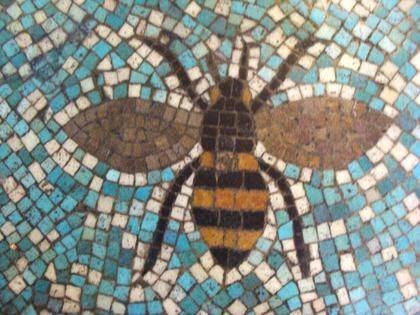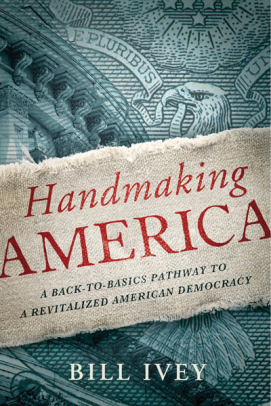Why do the arts matter at all? For some, the special characteristic of the arts and humanities to teach us to hold more than one truth in our heads at the same time (Martha Nussbaum identifies this as training in the Socratic Method – an essential skill for a functioning civil society) is reason enough.[1] The uniquely vicarious experience that experiencing a great work of art gives us allows for a particular kind of empathy – an understanding of how someone else views the world. And surely we need that now. Last year a study was released … [Read more...]
Defining Our Value
The recent flurry of articles around the “failure” of the creative class to save our cities—as Richard Florida’s writings have been characterized as promising—and the challenges of measuring the value of “creative placemaking” has me wondering if we are nearing the end of the road for all of the instrumental arguments we have been making for the nonprofit arts over the past 30 years. Or perhaps we ran out of road a while back but just didn’t notice. One of our most beloved arguments for support of the arts has been the idea that they … [Read more...]
Handmaking America
National Arts Strategies is an apolitical organization, so this review about an unashamedly liberal and progressive book is a little off the beaten track for us. But I think that every arts leader in America, whatever your political leanings, should read Bill Ivey’s latest offering: Handmaking America. In this beautifully written revisitation to the roots of progressivism in America, Ivey reminds us all of the extraordinary value that arts and culture have in shaping a meaningful personal and civic life, and the role we all could play in … [Read more...]
Michael Norton: How to buy happiness
How would the world be different if we could get all of our donors to watch this film? Michael Norton, Associate Professor of Business Administration and Marvin Bower Fellow at Harvard Business School, has been an outstanding faculty member for NAS on Strategic Marketing, and his TED talk is worth watching to find out what really makes you happy. View Mike's talk, "How to buy happiness," at Ted.com » … [Read more...]
Of mental models and doorknobs
In a rapidly changing environment, examining and recognizing our mental models is essential if we are to shape organizations that have the resilience to adapt to change.This article from Andrew Taylor is an excellent quick read about how prevalent those models may be, even if we are not aware of them. Of mental models and doorknobs - The Artful Manager. … [Read more...]
When Business Meets Culture: Ideas and Experiences for Mutual Profit
In this book, eight academics look at the strategic, cultural, and marketing parallels between for profit companies and cultural institutions. Rich with case studies, the essays make an extremely useful contribution to the current conversation about new business models. When Business Meets Culture: Ideas and Experiences for Mutual Profit … [Read more...]
An Optimist’s Tour of the Future
As arts organizations face an increasing number of challenges, it might help us all to lighten the load by “unlearning” some things – Matt Ridley sketches out what a few of those things might be. Matt Ridley on An Optimist's Tour of the Future - WSJ.com. … [Read more...]
Why Can’t Big Companies Solve Big Problems?
Organizations - and society - face complicated problems that require nuanced solutions. Hybrid thinking crosses traditional boundaries and enables ideas to mix together to create innovative solutions to those problems. The question is, how do you enable that type of flexible thinking in your organization? Why Can't Big Companies Solve Big Problems? | Co.Design. … [Read more...]
All Together: A Creative Approach to Organisational Change
Organizations need to be efficient and innovative but, in today’s social and economic conditions, they also need to be able to respond creatively to external challenges while staying true to their core purpose. This report looks at one organization journey towards achieving this. The Royal Shakespeare Company’s story is an example of an organization in turnaround. Over the past few years it has embarked on an ambitious transformation of its famous Stratford-upon-Avon home. At the same time it has transformed its entire way of working by … [Read more...]
Stealing Fire: Creative Deviance in the Evolution of New Ideas
A different look at how you create break-through innovation. Stealing Fire: Creative Deviance in the Evolution of New Ideas - Academy of Management. … [Read more...]
Billy Beane and Outcomes: What Can Baseball Tell the Nonprofit World About Measures and Measurement?
A fresh look at empirically driven outcome measures; from the "moneyball" guys. What do you think of the lessons they take away from the example? Are there others that stand out to you? Billy Beane and Outcomes: What Can Baseball Tell the Nonprofit World About Measures and Measurement?. … [Read more...]
Advocating for Arts in the Classroom
Mark Bauerlein has made a truly splendid argument for the real and important intrinsic value of the arts in our education system. Advocating for Arts in the Classroom : Education Next. … [Read more...]
Emergence: The Connected Lives of Ants, Brains, Cities, and Software
Steven Johnson is an amazing thinker and this book raises intriguing questions for how cultural programming might be designed in the future. Amazon.com: Emergence: The Connected Lives of Ants, Brains, Cities, and Software (9780684868769): Steven Johnson: Books. … [Read more...]
Funding: the state of the art | The Art Newspaper
We are all aware that instrumental arguments alone will not suffice for the arts in future. This excellent article sums up many of the reasons why this is so, and urges us to develop new language. Funding: the state of the art | The Art Newspaper. … [Read more...]
The Atlantic :: Magazine :: How to Save the News
Ben Cameron drew my attention to this article -- it's a very good read. The Atlantic :: Magazine :: How to Save the News. … [Read more...]



